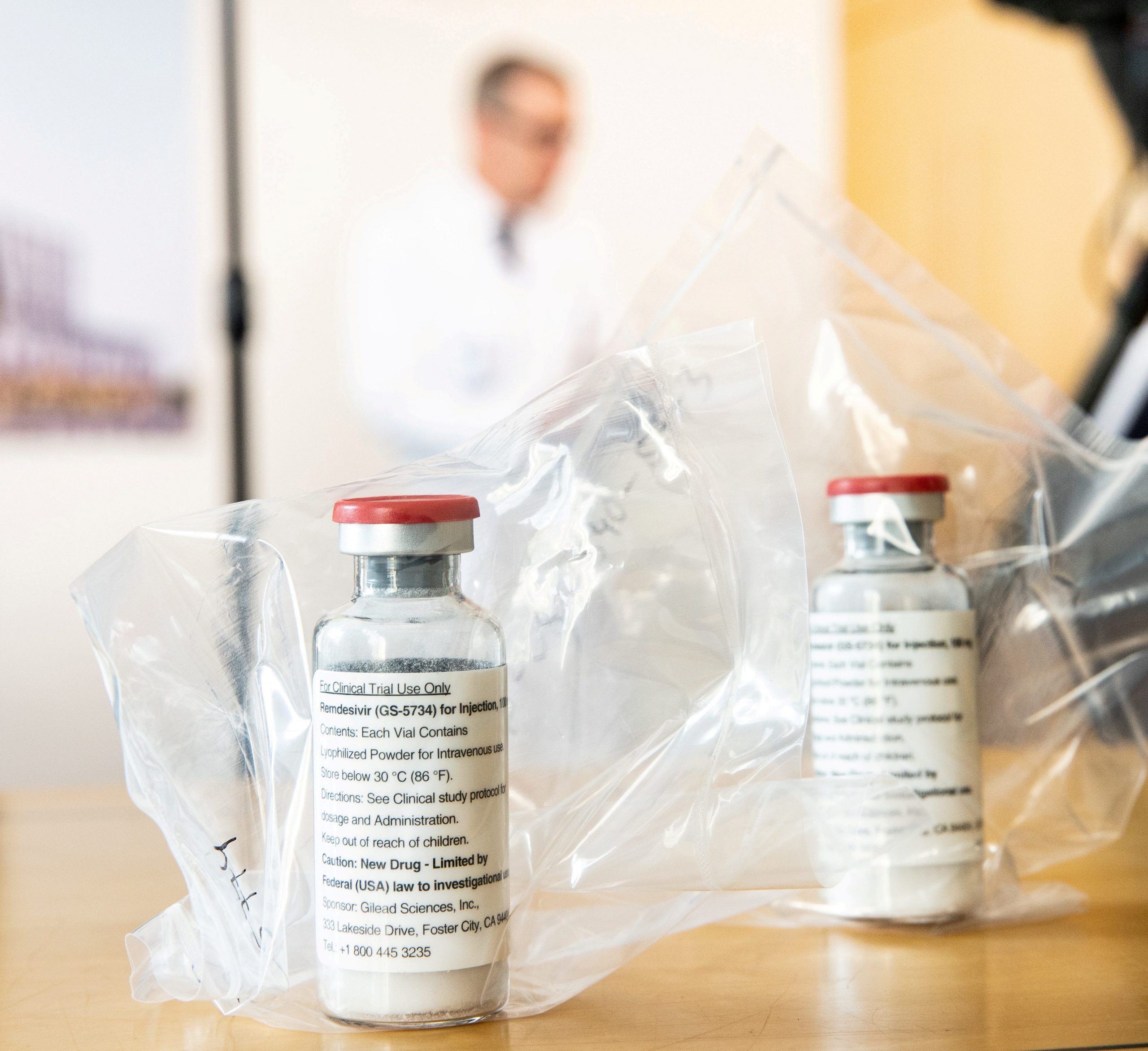
Reuters
- A World Health Organization study of more than 2,750 COVID-19 patients suggested that antiviral drug Remdesivir has “little or no effect” on survival.
- The Solidarity trial, which has not yet been peer-reviewed, found Remdesivir did not “substantially affect mortality,” reduce the need to ventilate patients, or shorten hospital stays.
- President Donald Trump received the antiviral drug as part of his COVID-19 treatment after he tested positive for the virus.
- Remdesivir is the only antiviral drug approved to treat COVID-19 in the US. It received its emergency use authorization in August after promising results in trials.
- Visit Business Insider’s homepage for more stories.
Remdesivir, the only antiviral drug authorized to treat COVID-19 in the US, does not stop patients dying or shorten their hospital stays, according to a massive World Health Organization (WHO) study.
The WHO’s Solidarity trial, one of the largest ongoing studies of COVID-19 drugs, examined the effects of remdesivir and three other potential coronavirus treatments in more than 11,000 patients in 30 countries.
Results from the clinical trial found that none of the drugs “substantially affected mortality,” reduced the need to ventilate patients, or shortened hospital stays.
“These remdesivir, hydroxychloroquine, lopinavir, and interferon regimens appeared to have little or no effect on hospitalized COVID-19, as indicated by overall mortality, initiation of ventilation and duration of hospital stay,” the report said.
The WHO study has not yet been peer-reviewed, but it’s available via a pre-print server.
Researchers gave remdesivir — which had shown promising results in previous studies — to 2,750 patients.
Gilead, which makes the drug, told the Financial Times that the data "appear inconsistent with more robust evidence from multiple randomized, controlled studies validating the clinical benefit of [remdesivir]."
President Donald Trump took remdesivir as well as a handful of other treatments after he tested positive for COVID-19 on October 2. The antiviral drug previously failed as an Ebola therapy and then became an option to treat coronavirus.
It received partial approval for use in the US and EU after the US National Institutes of Health (NIH) found in April that remdesivir helped severe coronavirus patients recover quicker.
The NIH study involved more than 1,000 hospitalized patients, and the final results were published in October, showing that on average, the typical recovery time was 10 days for those getting remdesivir compared to 15 days among the placebo group.
In August, the Food and Drug Administration broadened its emergency use authorization for remdesivir to all hospitalized patients with COVID-19.
It still hasn't been officially approved in the US, but Gilead is still ramping up production and expecting to produce more than two million treatment courses by the end of 2020.










